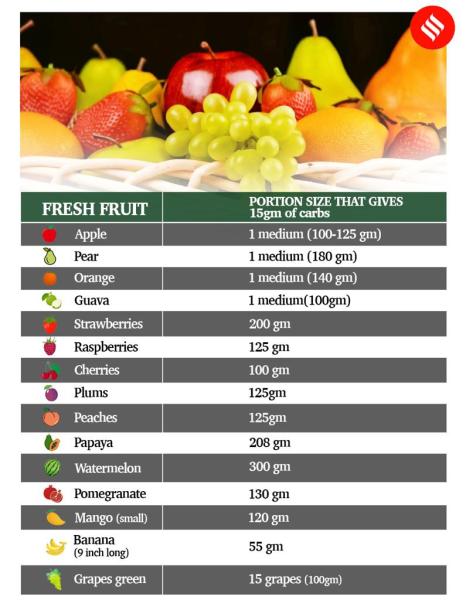Just last week, an older gentleman was sitting across from my table lamenting his high blood sugar. “I’ve always been well under control. But in the last three months, my blood sugar has skyrocketed. I’m very careful about my lifestyle. One change I’ve made in my diet is I just replaced 2 meals with fruits.This has increased my consumption of fruits.They are the healthiest and most natural foods.They can’t raise my sugar, right?
What is the correct answer to the patient’s question? Fruits are said to be nature’s sweets and are full of sweetness. Most of us love fruit because it looks good, tastes good, and is good for our health. These compounds not only protect the human body from the oxidative stress of free radicals, but also boost the body’s immune levels.
Many fruits are rich in dietary fiber, which plays an important role in controlling blood sugar levels. A diet high in soluble fiber slows the absorption of sugar. Plus, fiber makes you feel fuller, so you eat less. Fruits are high in water, so they help keep you hydrated. Both the fiber and water content in fruits help fight constipation, a common problem in diabetics. reduce the risk of

So can diabetics eat fruit freely? Or is fruit strictly forbidden to diabetics because of its inherent sweetness? As always, the truth lies somewhere in between. First, people with diabetes can eat any fruit. Second, not all fruits are the same, and recommended portion sizes vary greatly depending on their glycemic index (GI). The GI value represents a food on a scale of 1 to 100. The higher the score, the faster the food is absorbed and the higher the blood sugar level. Third, the most beneficial effects of fruit are seen only with fresh fruit and not with canned or processed fruit. Many of these have added sugar and may be nutrient depleted. Fourth, fruit juices are not the same as fruit. In fact, they contain only the sweet part of the fruit with no fiber, are much less nutritious, and cause blood sugar spikes.
Which fruits are good for people with diabetes and how much? The key to fruit intake in diabetes is to incorporate them into your daily carbohydrate allowance. So if you add fruits to your diet, you should reduce other carbohydrates The amount of carbohydrates in the fruit determines its effect on blood sugar levels. For diabetics, one serving of fruit contains 15 grams of carbohydrates and the total daily intake should not exceed 30 grams. Therefore, you can have one serving of fruit with 15 gm of carbohydrates in one meal, for a total of two servings of fruit in one day. Because fruit increases your carbohydrate load, it is preferable to eat it as a snack in the morning or in the evening rather than as a dessert after a meal. Fruit lacks protein, which makes snacks more nutritious and filling.
The glycemic index also helps you choose fruits because it reflects how quickly blood sugar levels rise. Includes strawberries. Medium GI fruits (GI 50-69) include figs, grapes and oranges. Ripe bananas and dates are fruits with a high GI value. The table shows the portion sizes of various fruits that provide 15 grams of carbohydrates.
.
